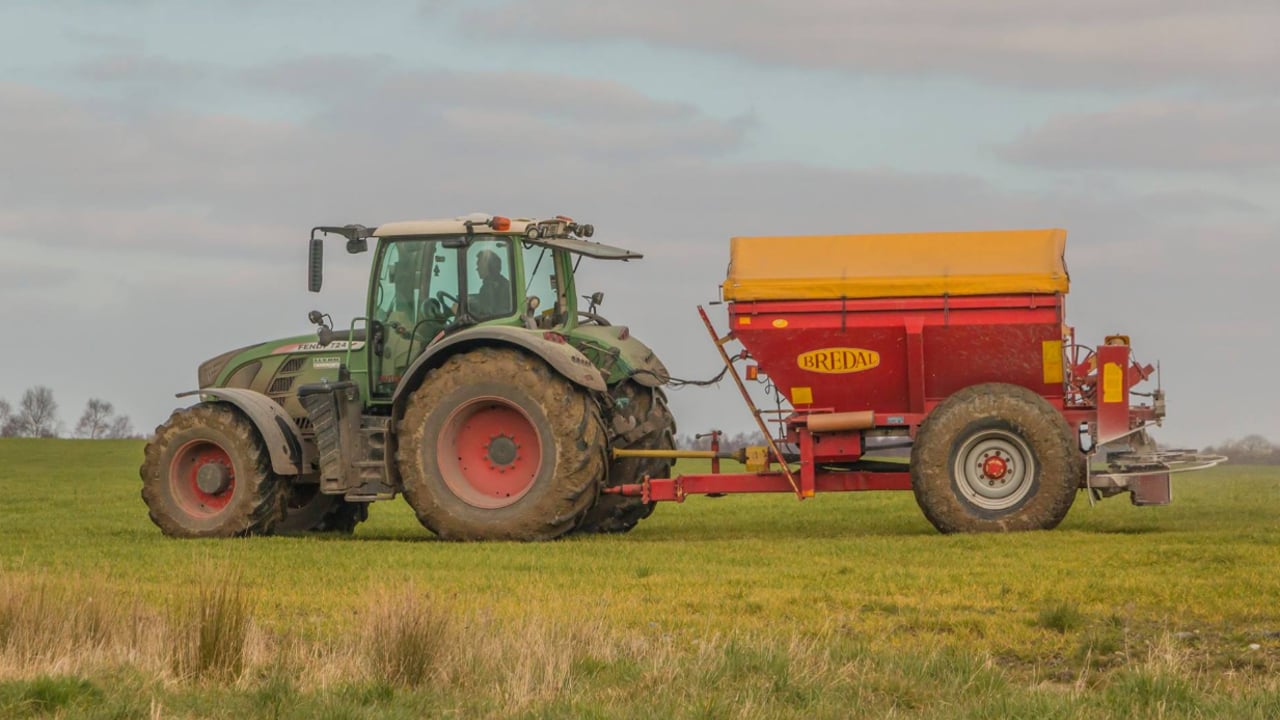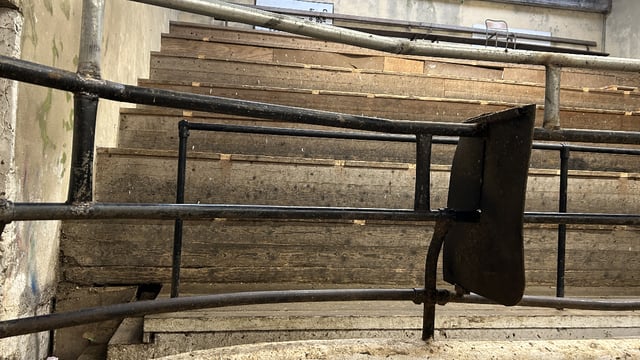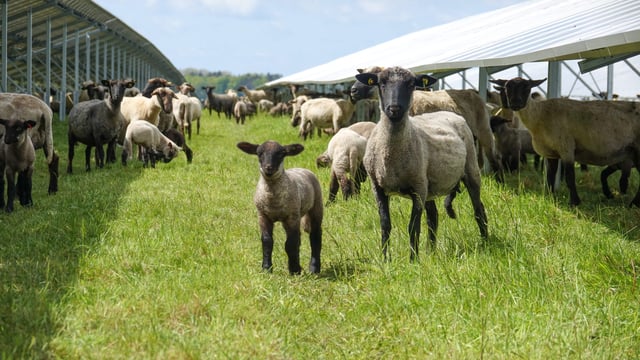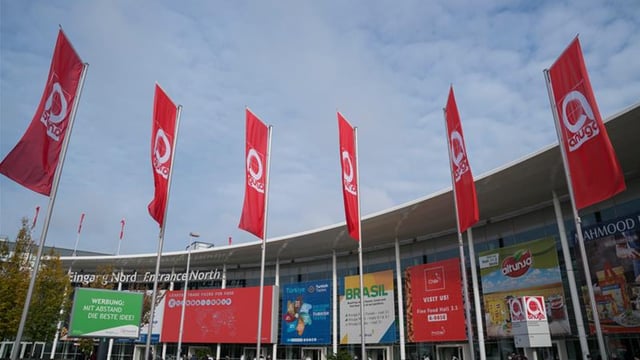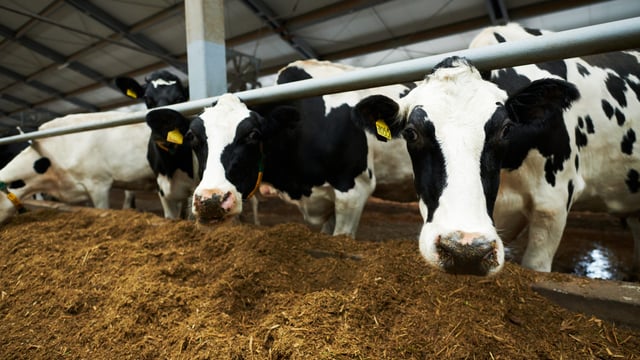New EU fertiliser tax needs 'urgent' postponement - industry
Representatives of fertiliser manufacturers and blenders have called for the government to make "urgent" representation to the EU for the postponement of a new tax on fertiliser imports into the EU.
The Carbon Border Adjustment Mechanism (CBAM) is due to come into effect from the start of 2026.
The CBAM places a carbon tax on goods imported into the bloc from third (non-EU) countries when production is deemed to be carbon intensive and at "most significant risk of carbon leakage".
The sectors to be impacted by this tax include fertiliser, cement, electricity, iron, and steel.
The CBAM is currently in a transitional period where importers are required to report their import volumes. However, from January 1 of next year, importers will have to pay to receive CBAM certificates for the goods they import.
Concerns have been raised from several quarters already that the CBAM, along with tariffs on fertiliser from Russia and Belarus that are due to come into force, will increase the cost and reduce the availability of fertiliser for EU farmers.
Now, the Irish Fertiliser Manufacturing and Blenders Association (IFMBA) has added to the chorus of concerns, saying the regulation will be unmanageable for Irish fertiliser importers.
In a letter to a range of agri-sector stakeholders, including the Department of Agriculture, Food and the Marine, the IFMBA said it is "formally requesting the support of the Irish government, Teagasc, and all stakeholders in calling for an immediate postponement of CBAM on nitrogen fertilisers in Ireland".
The letter said: "The expected cost increases for nitrogen and phosphorous fertilisers due to CBAM are at this stage well documented.
"The purpose of this letter is not to reiterate the cost and implications that CBAM will add...but to outline the unmanageable process and procedures that Irish fertiliser importers are expected to administer if they wish to continue to import fertilisers from outside the EEA (European Economic Area)," the letter added.
The basis for this "unmanageable process", according to the IFMBA, are three "data points" used to calculate CBAM obligations.
The IFMBA said that each of these - verified actual embedded emissions; CBAM benchmarks; and certificate pricing - are problematic for Irish fertiliser importers.
Actual embedded emissions
On the actual embedded emissions, on which the cost of CBAM certificates are based, the letter warned that importers will not have access to this data for 2026 imports until the first quarter of 2027, forcing importers to rely on "default pricing" for 2026 imports.
For protected urea, this would effectively double the CBAM cost to €78/t.
This issue would then reoccur in each subsequent year, the letter said.
CBAM benchmarks
On the issue of CBAM benchmarks, the IFMBA warned that, regardless of emissions values, the benchmarks used to determine a free allocation of imports will not be known until next year, having been previously promised by the third quarter of this year, with only preliminary benchmarks available by the end of this year.
The letter said that this will be "unacceptable and commercially unworkable", especially if the preliminary benchmarks are subsequently revised down and sales have already been made.
Certificate pricing
On the third issue, relating to CBAM certificate pricing, the European Commission will set certificate prices retrospectively in 2026, i.e. certificate pricing for quarter one next year will not be known until quarter two.
The IFMBA said that importers are already being asked to provide quotes for quarter one fertiliser deliveries without knowing what the CBAM certificates will cost for those deliveries, creating "impossible conditions for pricing".
'Unmanageable risk'
The IFMBA said that these three factors taken together create "unacceptable and unmanageable risk".
The association noted that 43% (around 580,000t) of fertiliser imported into Ireland in 2024 originated outside the EEA.
"For this volume, the risk of speculating on emissions factors, benchmarks, and prices is too great to absorb," the group said.
"CBAM will add significant costs to all fertilisers imported from outside the EEA, with urea, essential for producing protected urea, being particularly affected," the letter warned.
It also warned that, as free allowances are phased out gradually up to 2034, the cost of European calcium ammonium nitrate (CAN) fertiliser will rise.
According to the IFMBA, the "only alternative" for Irish fertiliser importers to remove the risks associated by CBAM is to cease trade with non-EEA fertiliser producers altogether.
However, as 80% of urea imports into Ireland in 2024 came from outside the EEA, Ireland could face a deficit of 164,000t of urea and protected urea.
If importers moved to make up this shortfall with European produced CAN, this would reverse progress on Ireland meeting its emissions reduction target for agriculture, the IFMBA warned; while ceasing non-EEA imports would also risk fertiliser shortage and "sharp price increases".
"We trust this letter provides a clear picture of the situation facing the Irish fertiliser industry; the implications for Ireland's climate agenda; and a clear warning of the unmanageable risks that the CBAM legislation now imposes," the IFMBA said.
"It also highlights the very limited options remaining for stakeholders to continue conducting responsible business," it added.
The letter made the following requests of the government and stakeholders:
- Make "urgent representation" to the European Commission to call for a postponement of CBAM on nitrogen fertilisers in Ireland for 2026;
- Campaign for a postponement of CBAM for fertiliser to ensure proper alignment between the EU and UK on CBAM;
- Request the commission to implement procedures into legislation to ensure price predictability at the time of import and invoicing;
- Assess the economic and environmental implications from an Irish context and the potential impact on protected urea and the achievement of Ireland's Climate Action Plan targets if CBAM continues in its current form.

